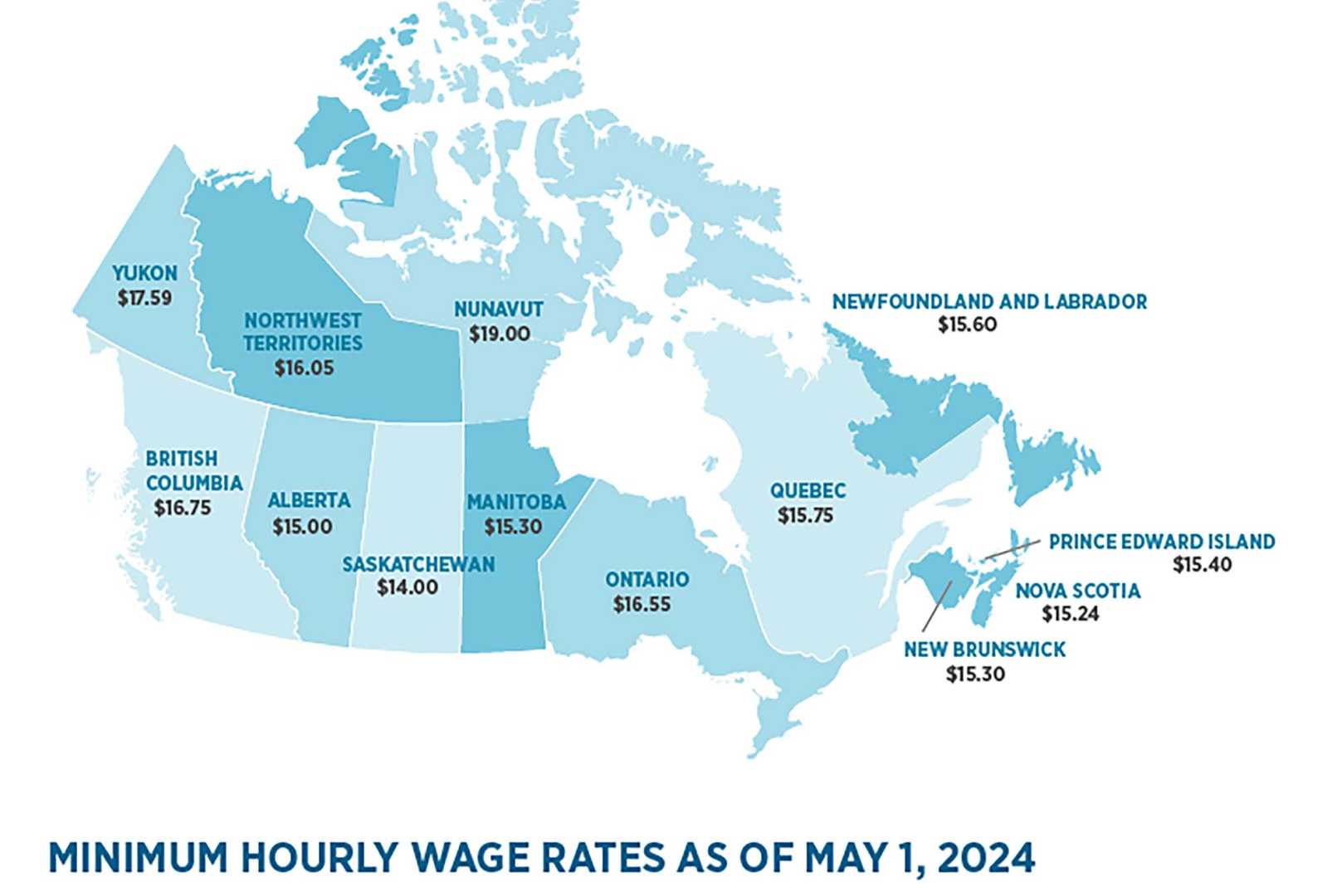News
Alberta’s Minimum Wage Tied for Lowest in Canada Amid Calls for Increase

As of Tuesday, Alberta‘s minimum wage is now tied for the lowest in Canada, alongside Saskatchewan. The development comes as both Ontario and Saskatchewan are set to increase their minimum wages. Ontario will see its minimum hourly rate rise to $17.20, surpassing Alberta, which has not changed its $15 minimum wage since October 1, 2018. At that time, Alberta’s minimum wage was the highest in the country.
Bradley Lafortune of Public Interest Alberta commented on the situation, stating, “Fifteen dollars doesn’t go as far as it used to in 2018.” The organization focuses on education and advocacy within the province. Lafortune suggests raising the minimum wage to what he describes as a living wage, advocating for a $25 minimum hourly rate in most areas of Alberta.
Similarly, Gil McGowan, president of the Alberta Federation of Labour, calls for an increase adjusted to inflation, proposing a rate in the $19 range. “Every Albertan understands that we’ve been living through an unprecedented rise in the cost of living,” McGowan noted, “but over that six-year period, we haven’t seen an increase in the minimum wage.”
Meanwhile, the Canadian Federation of Independent Business (CFIB) emphasizes the impact of wage increases on small businesses. Bradlee Whidden, CFIB policy analyst for Western Canada, remarked, “The organization isn’t opposed to minimum wage increases, as long as the increase is predictable, stable, and sustainable.” He highlighted the potential negative impact on small businesses if wage changes occur too swiftly, noting that past wage hikes led some businesses to increase prices or reduce labor.
The Alberta government acknowledges the complexity of the issue. Alberta’s minister of jobs, economy and trade, Matt Jones, stated that while the minimum wage is a significant matter for the government, “significant changes to the minimum wage could negatively impact small businesses, youth, and Albertans seeking their first job or part-time employment.”
Lafortune proposes that small businesses can adapt through tax credits, grants, and job-training programs that involve cost-sharing between the government and employers. He argues that raising the minimum wage could actually benefit small businesses by stimulating local economies, as “people who are making minimum wage…are going to spend money at the small businesses and the grocery stores.”












